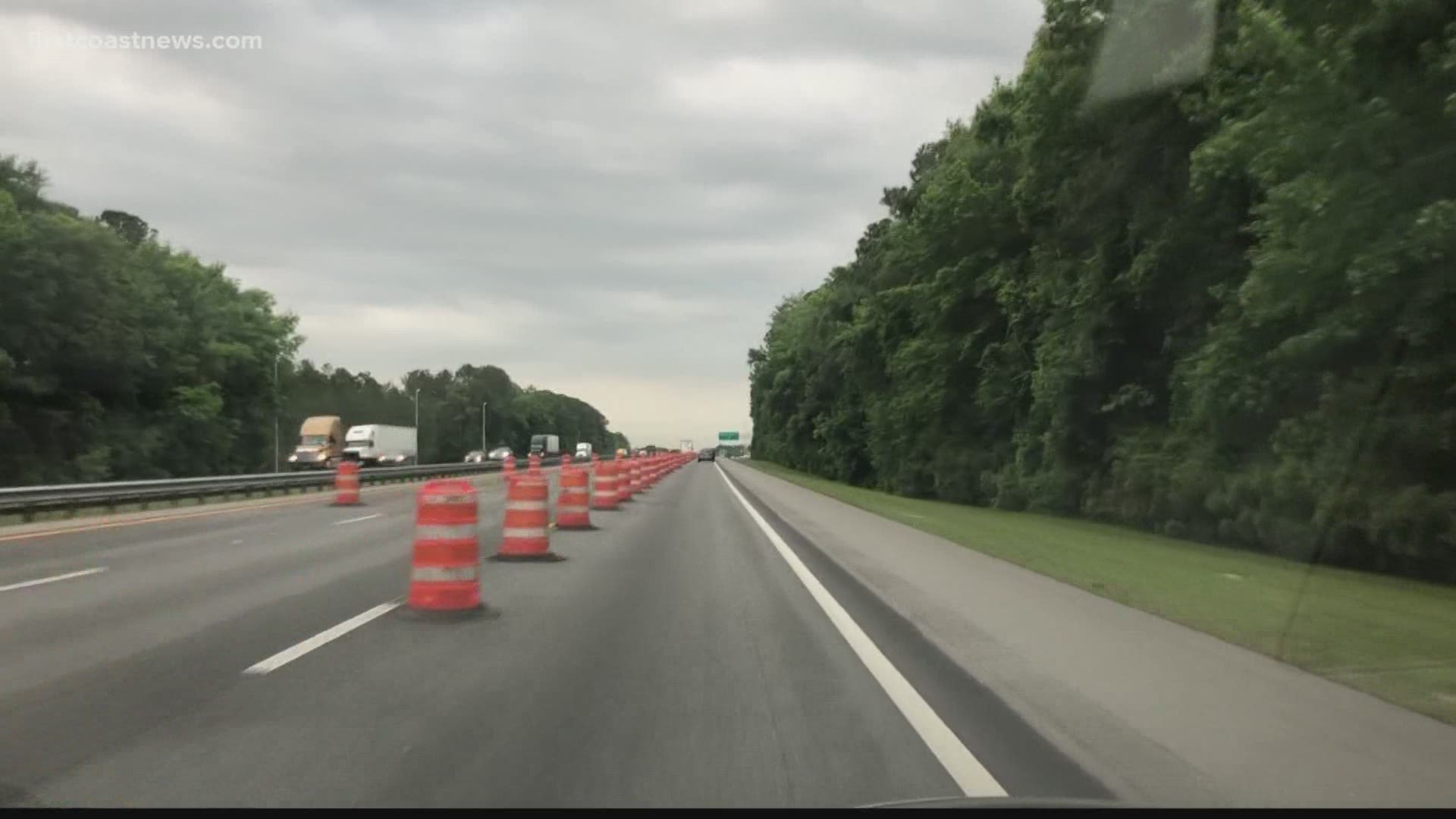NASSAU COUNTY, Fla — Florida Gov. Ron DeSantis says checkpoints at interstate entrances to the Sunshine State are helping in the fight against coronavirus, but some people are less convinced.
The governor issued Emergency Order 20-86 on March 27, ordering – among other things - that travelers entering Florida from Louisiana, New York, New Jersey and Connecticut self-quarantine for the duration of their Florida visit or 14 days, whichever is shorter.
But there are three interstate highways that traverse the Florida border, and only two of them have checkpoints.
“I’ve noticed in the past few weeks a lot more increase in the out-of-state tags – New Jersey, New York, Pennsylvania -- coming down [Interstate] 75, where there’s no checkpoint,” long haul trucker Lee Thorson told First Coast News Monday evening.
Thorson said that he and other commercial truck drivers are not being stopped. He also reminded there are no checkpoints on secondary roads or highways. So, I drove to the state line myself to get the experience that other non-commercial drivers are getting, firsthand. I deliberately crossed into Georgia on State Road 17, parallel and just a few miles west of Interstate 95, to see if there was heavy southbound traffic skirting the checkpoint. There wasn’t.
Then I re-entered I-95 from Georgia State Road 40 and headed south. The checkpoint – actually south of the State Road 17 exit – was up and running. The exchange I had with the agent who questioned me was perplexing.
The woman, who was dressed in casual civilian clothes and didn’t appear to be a law enforcement worker, asked me what state I was traveling from. When I explained my route, I followed by asking, “Are there any particular states you’re looking for?”
“Um, New York, New Jersey, and – something – Colorado or something,” was her answer. By all appearances, she hadn’t been trained to remember the hotspot states of coronavirus concern.
I then asked, “What are you telling them if they [are from one of those states]?”
“We just give them information,” she said.
I volleyed, “But everybody can go through, right?”
“Yeah, everybody’s going through, they just got to give them the information," she said.
Emergency Order 20-86 stipulates that disobeying the quarantine order is a second-degree misdemeanor punishable by a fine of as much as $500 and 60 days in jail.
That raised the question from Thorson about how the order is being enforced. More bluntly, is it being enforced?
“There’s nobody really monitoring them or checking on them after that,” Thorson reasoned. “There’s nobody to really know if they’re doing what they’re supposed to be doing.”
First Coast News asked the Florida Department of Transportation for interviews both Monday and Tuesday but was declined. Despite the multiple attempts, a department spokesperson referred us to two of FDOT’s recent press releases, which can be found by clicking here and here. Each cites Emergency Order 20-86.
Given that, we requested an interview with the governor’s office on Tuesday. In our email we asked why there is no checkpoint where I-75 enters Florida, how much the checkpoints are costing to operate, and how the quarantines are being enforced. The governor’s office referred us back to the Department of Transportation.
And so for now, it appears a matter of speculation whether the checkpoints are helping to slow or stop the spread of COVID-19 into Florida from elsewhere.
In a briefing at the capitol Tuesday afternoon, Gov. DeSantis said Florida has screened almost 20,000 people entering the state from the New York City and New Orleans areas. He didn’t specify how many of those screenings have happened at border checkpoints, but the governor said of overall screening efforts, “I think that that’s been effective. You don’t have that many people coming from that part of the country and not have massive outbreaks unless you’re doing something. And so I think that that was the right thing to do and I think that it has been effective and I’m glad that we were able to do it.”
But to some who cross state lines on a routine basis, the highway border checkpoints might be getting too much credit.
“I think it’s a good idea in the principle of it and everything,” Thorson offered, “but I don’t think it’s working quite as well as what they would hope for it to be working.”

